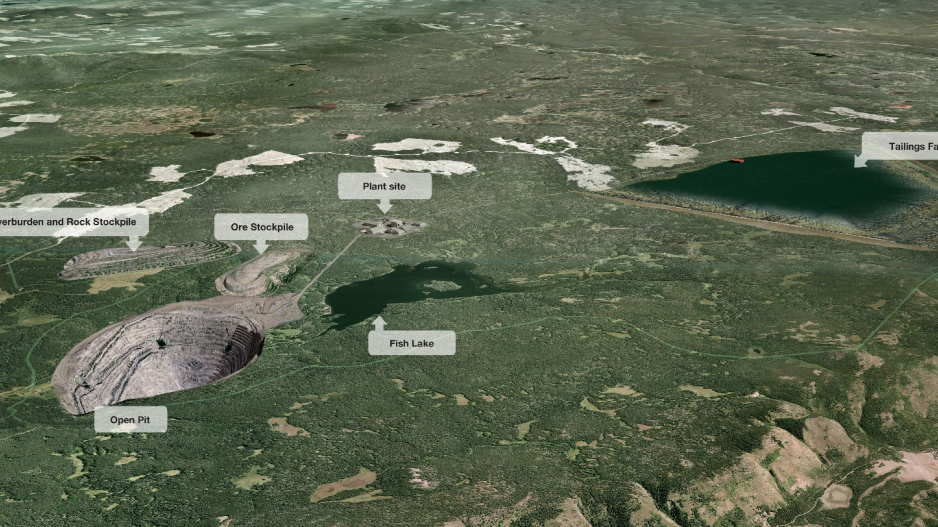An environmental group has won a defamation case brought against it by Vancouver-based mining company Taseko Mines (TSX:TKO).
The suit, which was filed in 2012 in B.C. Supreme Court, alleged that the Wilderness Committee had made defamatory comments in three articles published on its website.
The articles followed Taseko Mines’ failure to get approval for its proposed copper-gold Prosperity Mine near Williams Lake, which would have involved draining a lake called Fish Lake and using it as a tailings pond.
Read: Profile of Roger William, chief of Xeni Gwet'in First Nation
Read: Taseko, Wilderness Committee square off in court
Read: Tsilquot'in slam Taseko lawsuit against Wilderness Committee
The Wilderness Committee articles were about Taseko Mines’ second proposal, called New Prosperity, in which the company would have used a smaller lake as the tailings pond site. The Wilderness Committee described how mine tailings from the smaller lake would eventually drain into and pollute Fish Lake.
Both the Prosperity and New Prosperity proposals were rejected by the federal Canadian Environmental Assessment Agency.
Taseko argued that the articles published by the Wilderness Committee portrayed the company as having “callous disregard” for the environment.
The Wilderness Committee argued that Taseko’s lawsuit constituted a SLAPP (strategic lawsuits against public participation), a lawsuit brought against people or organizations who are speaking in opposition to a particular project. While B.C. briefly brought in anti-SLAPP legislation, it was repealed in 2001 by the newly-elected BC Liberal government of the time.
“What they’re intended to do is silence critics by burdening them with the cost of legal defense,” said Gwen Barlee, national policy director with the Wilderness Committee.
In his decision, Justice Funt dismissed Taseko’s claim, writing that the statements by the Wilderness Committee were supported by Taseko’s own testimony during the environmental assessment process.
Funt took the unusual step of awarding special costs to the Wilderness Committee, writing that Taseko’s decision to pursue the lawsuit after the review panel released its report supporting many of the statements made by the Wilderness Committee “attracts the Court’s rebuke.”
“The victory is more than just a victory for the Wilderness Committee. It’s reinforcing the public’s right to speak on matters that impact the environment,” said Barlee. The Wilderness Committee is calling for B.C. to put in place anti-SLAPP legislation, similar to legislation that is already in place in Ontario, Quebec and other jurisdictions.
Brian Battison, vice-president of corporate affairs for Taseko, said the company is considering an appeal of the decision in the defamation suit and declined to comment further on the lawsuit. Taseko has also appealed the environmental assessment panel’s decision to reject the New Prosperity project on the grounds that the administrative process was unfair. That appeal is ongoing.
@jenstden




